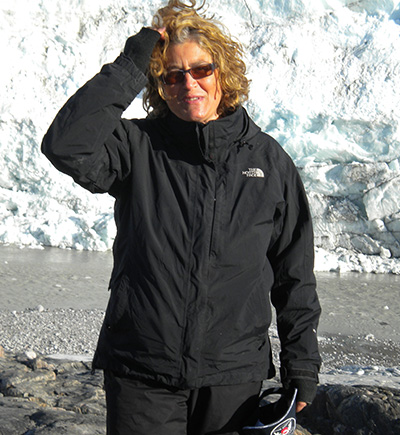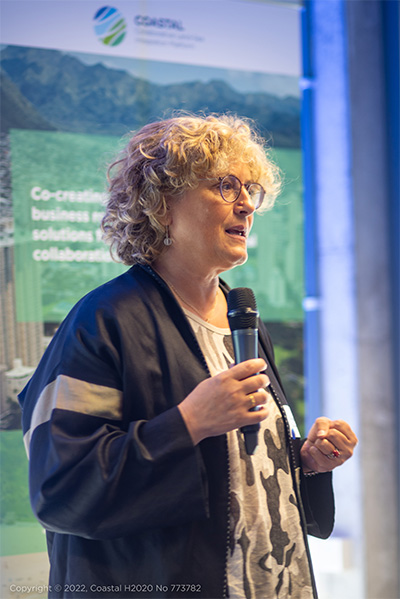Gia Destouni
When Gia Destouni, professor at Stockholm University and guest professor at KTH, first set her foot at KTH as a civil engineering student, the research path was nothing she had ever even considered. Still, it would turn out to be just her thing. Nowadays, Gia is not only world leading in her research direction – she was among the ones initiating it.
After finishing her engineering studies, Gia got offered a PhD position that led straight to a senior fellowship at KTH with a year at the University of Florida. She then got promoted to associate professor and professor at KTH, and later on also professor at Stockholm University. “Now that I'm telling you this, it sounds like everything just went like clockwork. But really, that is not the case at all”, Gia says, after the quick recap on the way to where she is today. “No one in my family has done a PhD or ever even come close to studying natural sciences or technology, so I had no clue what it would mean when they asked me if I wanted to continue at KTH doing research”.

For Gia however, the interest in physics and mathematics has always been evident, as well as for societal issues. And water was the perfect topic for uniting these interests. “Water comes into everything: into all life, all parts of society, all parts of nature. That is why I’m so interested in following the water and understanding what happens along the way. How do changes in water quality and quantity reflect changes in society and the climate? NASA’s motto when looking for life in space is ‘follow the water’. I want to follow the water to understand what is happening here on our planet.”
So, by following water flows, water quality, and their changes from local to global scale, Gia has managed to make pioneering water connections, driving a new field of research on Earth’s integrated water system on land, across regions and scales up to global. However, breaking new ground is seldom easy. “Making these water connections means crossing discipline boundaries, with many objections to what you do. So, it’s been hard and I have been close to giving up, asking myself ‘why should I keep going?’”, Gia says.

I nod in understanding but still wonder: in that case, how do you manage to continue? “Because I am so damn stubborn!”, Gia answers and laughs. “As soon as someone has opposed me, it’s given me motivation to prove them wrong. So, on the one hand, objections are encouraging, but you can’t stand the headwinds forever. And at the same time, that is how research is, it goes up and down. You just have to have enough motivation left to get up from the lows, and of course, the support from home. Just like everyone else I’ve had things happening in my life, while working a lot. But my family has always supported me.”
I’m suspecting that the Swedish “jantelag” has rubbed off on Gia after so many years away from her native Greece, since she talks so humbly about her carrier. This despite an extraordinary academic CV including commissions of trust, institutional responsibilities, honors and awards, and even a medal from the King for “outstanding contributions in water and climate research”. I ask her how it feels to get such recognition after all the setbacks over the years. She laughs. “Perhaps it sounds childish, but it really makes me very happy. It is a good feeling, and it is needed”, Gia says.
Yet, Gia emphasizes that research can never be about wanting recognition, fame or money – the motivation needs to come from inside when moments of challenge hit hard. “To me, it’s always been about pure curiosity. Like damn, I want to understand and solve this. I think it is hard to make it through as an academic otherwise”, says Gia. And man, are we happy that Gia has followed her curiosity for water through this (for her) unexpected research path. Now only future can tell where it will bring her next.
Text: Isabel Nilsson Alarcón
